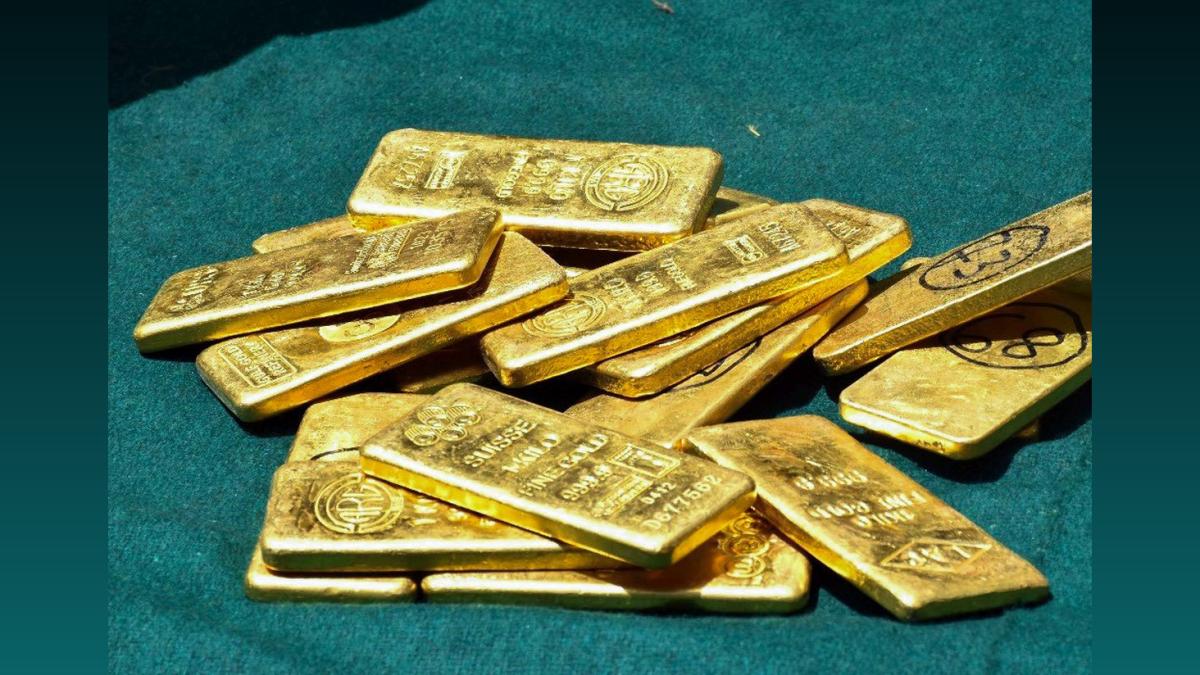Declining Gold and Silver Prices Amid Profit-Taking and Fed Caution
Gold and silver prices have recently seen a noticeable decline from their record highs, primarily driven by profit-taking among traders. This movement is set against the backdrop of cautious signals from the US Federal Reserve regarding future interest rate cuts, contributing to a complex market environment.
Recent Trends in Gold and Silver Futures
On September 24, gold futures for October delivery on the Multi Commodity Exchange (MCX) experienced a drop of Rs 408, or 0.36%, bringing the price down to Rs 1,13,428 per 10 grams. This decline follows a significant height reached just a day prior, when gold peaked at an astonishing Rs 1,14,179 per 10 grams. Similarly, the December contract for gold fell by Rs 353, or 0.31%, settling at Rs 1,14,486 after also hitting a historic high.
Silver futures mirrored this downward trend as well. The December delivery for silver decreased by Rs 221, or 0.16%, landing at Rs 1,34,841 per kilogram. The March 2024 contract also saw a drop, slipping Rs 121, or 0.09%, to Rs 1,36,271 per kg. Traders are seemingly capitalizing on the recent highs, leading to a strategic retreat in buying.
Global Market Context
The situation is not exclusive to the Indian market. Globally, gold futures for December also faced downward pressure, trading 0.44% lower at USD 3,799.07 per ounce after reaching an all-time high of USD 3,824.60 per ounce. Silver futures followed suit, with prices dipping 0.44% to USD 44.41 per ounce.
Experts in the commodities market indicate that these declines are largely attributed to profit-taking. Additionally, Federal Reserve Chairman Jerome Powell’s recent remarks have introduced a cautious tone regarding future monetary policy, influencing traders’ strategies.
Insights from Federal Reserve Chair Jerome Powell
Jerome Powell’s warnings shed light on the delicate balance the Fed must maintain. He emphasized that cutting rates too aggressively could compel the Fed to reverse its decisions if inflation remains a concern. Conversely, if the Fed maintains a restrictive policy for too long, it risks negatively impacting the labor market.
During remarks made on Tuesday, Powell articulated a carefully balanced approach to potential monetary easing. He noted that rushing to cut rates could leave the “inflation job unfinished,” while delaying action might unnecessarily strangle the labor market. His comments reaffirmed the idea that current monetary policy is “modestly restrictive,” offering the Fed some leeway to adapt to fluctuating economic conditions.
Anticipated Market Reactions
In the wake of these developments, market participants are contemplating the likelihood of further rate reductions. Just last week, the central bank cut its benchmark rate by 25 basis points. Analysts suggest that traders are currently pricing in the possibility of two additional cuts by the end of the year. This speculation may have limitations, however, as it simultaneously caps losses for bullion prices, lending a degree of support to gold and silver amid profit-taking trends.
Geopolitical Factors and Safe-Haven Demand
It’s essential to consider the ongoing geopolitical tensions in regions like Eastern Europe and the Middle East, which continue to underpin safe-haven demand for gold and silver. Despite the recent price declines, these factors help to limit the downside movement, as many investors may still seek the inherent security that precious metals provide in tumultuous times.
Summary
In a climate where profit-taking is influencing gold and silver prices, and the Federal Reserve adopts a cautious stance toward interest rate cuts, traders and investors alike are navigating a complex landscape. The delicate interplay of domestic profit strategies, global economic indicators, and geopolitical uncertainties all contribute to the current dynamics in precious metals markets.



